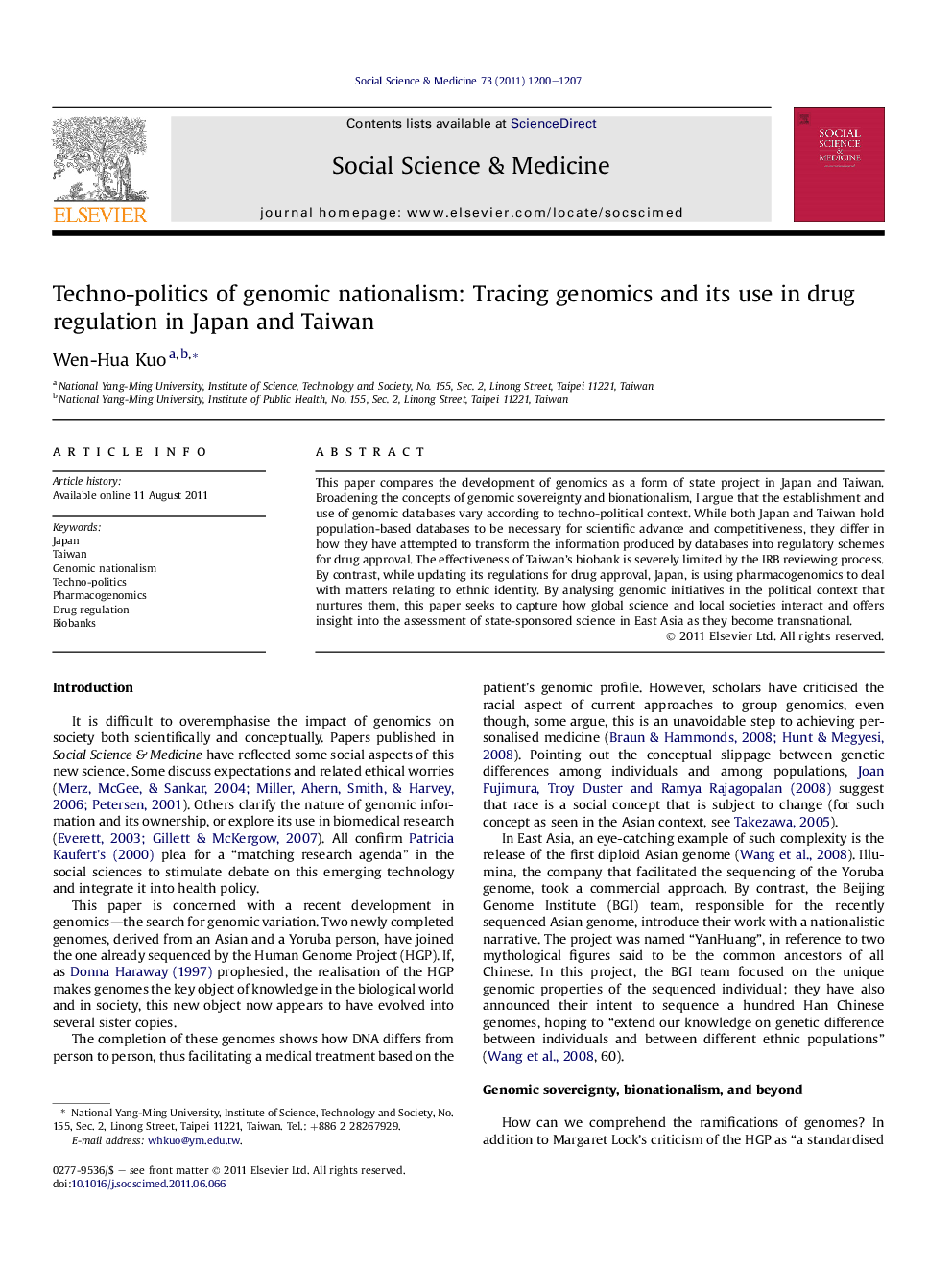| Article ID | Journal | Published Year | Pages | File Type |
|---|---|---|---|---|
| 952859 | Social Science & Medicine | 2011 | 8 Pages |
This paper compares the development of genomics as a form of state project in Japan and Taiwan. Broadening the concepts of genomic sovereignty and bionationalism, I argue that the establishment and use of genomic databases vary according to techno-political context. While both Japan and Taiwan hold population-based databases to be necessary for scientific advance and competitiveness, they differ in how they have attempted to transform the information produced by databases into regulatory schemes for drug approval. The effectiveness of Taiwan’s biobank is severely limited by the IRB reviewing process. By contrast, while updating its regulations for drug approval, Japan, is using pharmacogenomics to deal with matters relating to ethnic identity. By analysing genomic initiatives in the political context that nurtures them, this paper seeks to capture how global science and local societies interact and offers insight into the assessment of state-sponsored science in East Asia as they become transnational.
► Compares the development of genomics and its use in drug regulation in Japan and Taiwan. ► Argues that global science is not passively assimilated; it relies on the specificities of techno-political contexts. ► Nationalism and ethnic concerns in relation to drug regulation have facilitated Japan’s progress in genomic banking. ► Lacking a robust framework for policy discussion, Taiwan’s biobank has been severely limited by the IRB review process. ► As biotech in Asia becomes transnational, more empirical studies of techno-politics in science are required.
